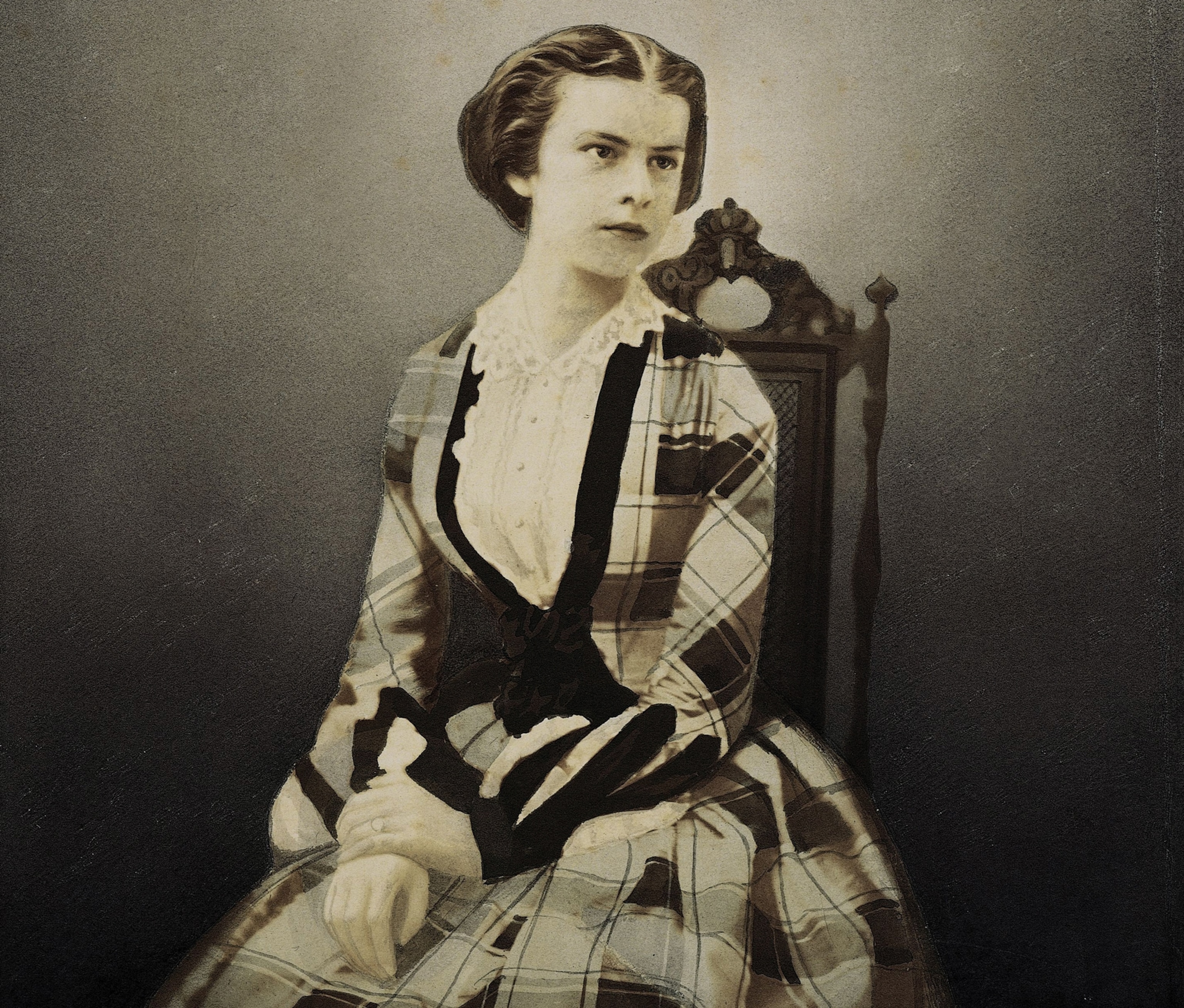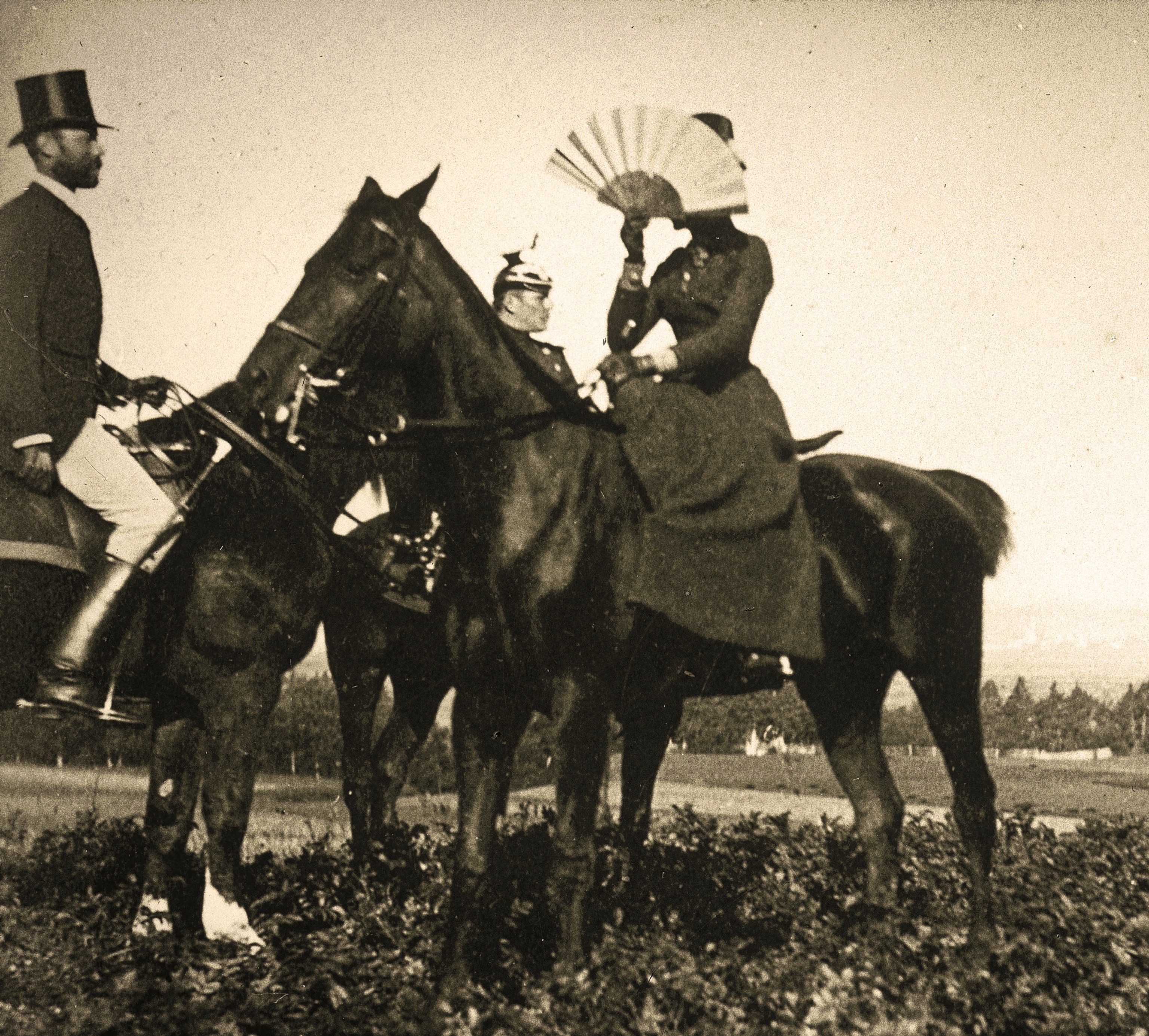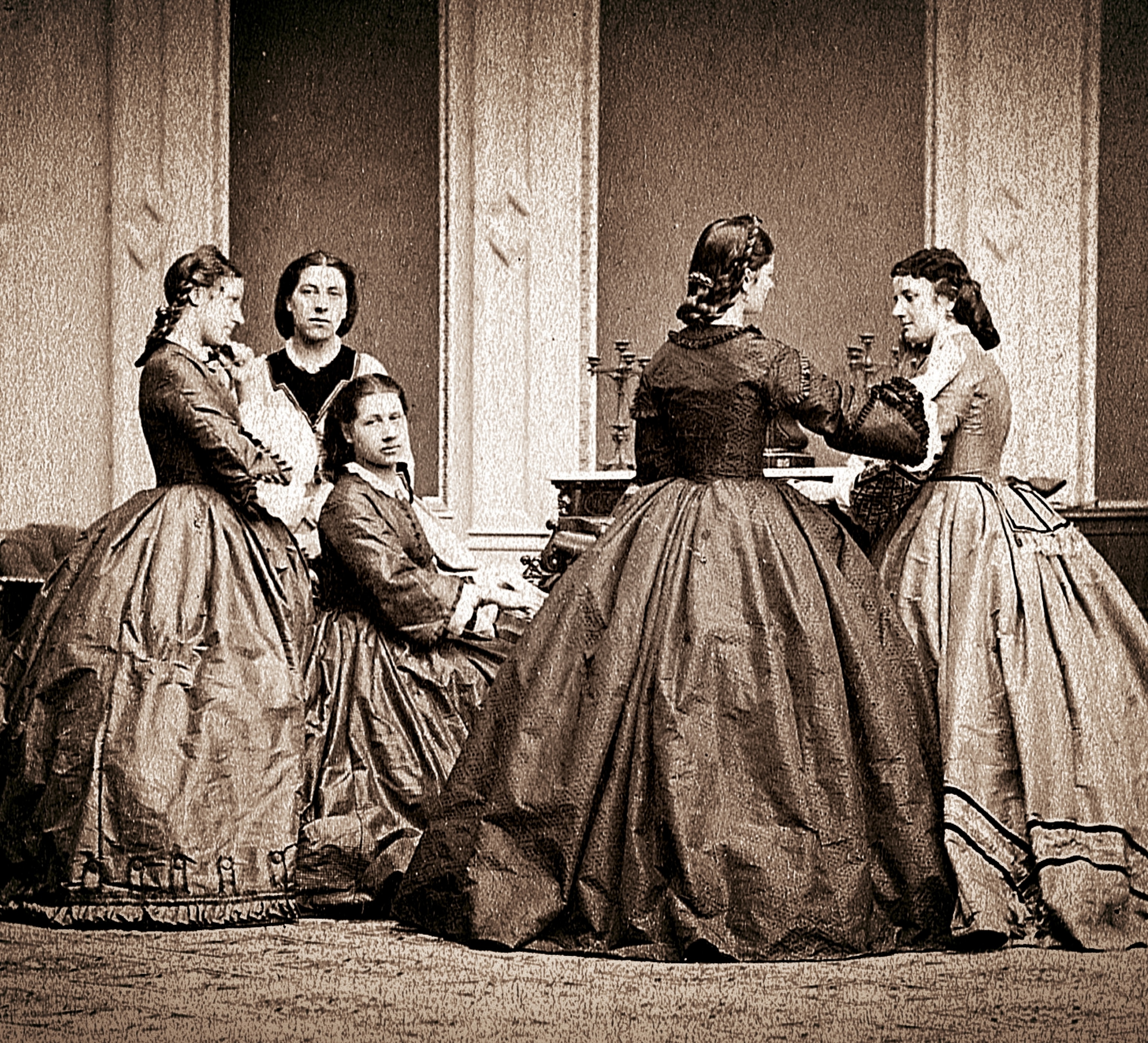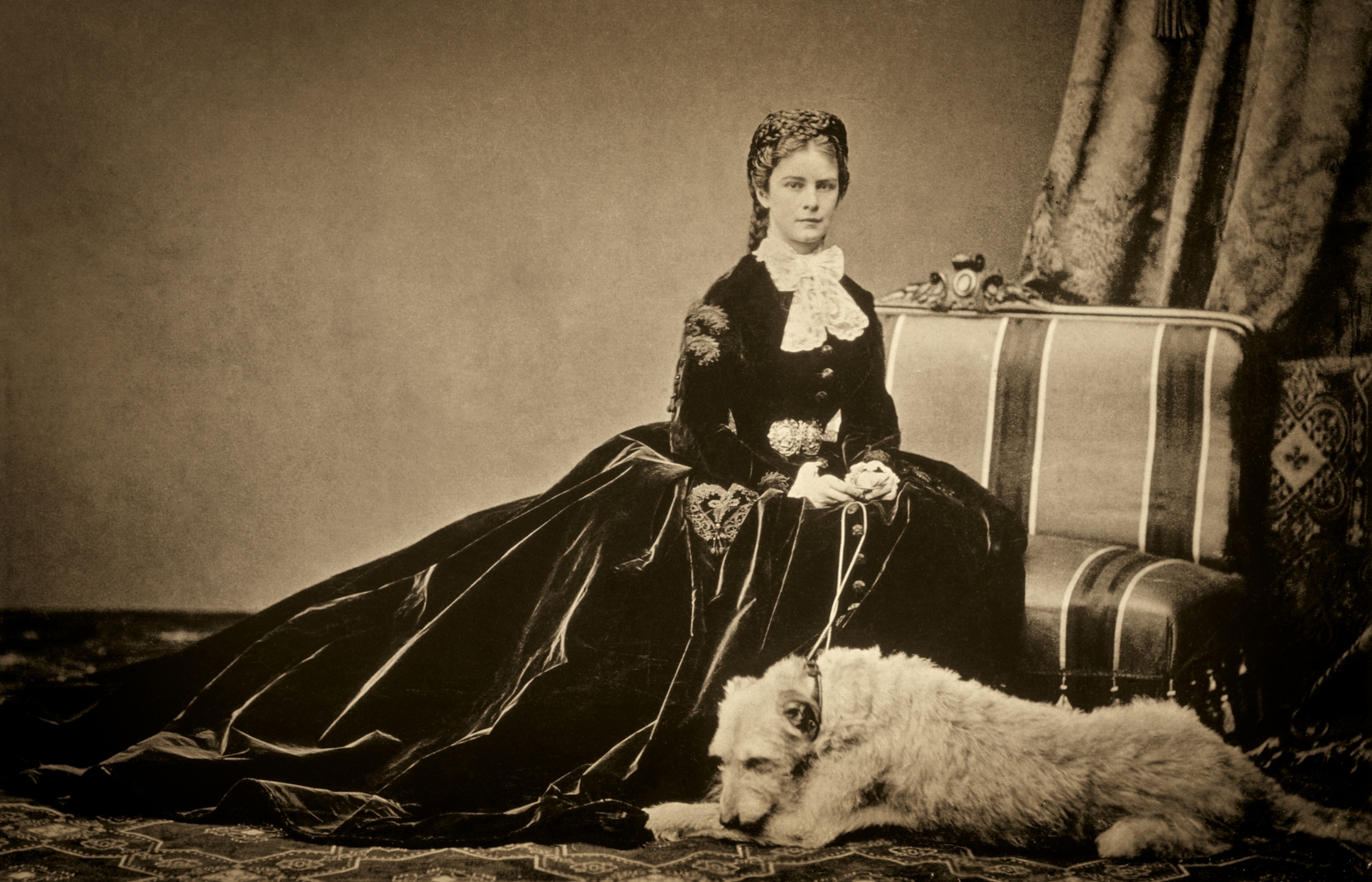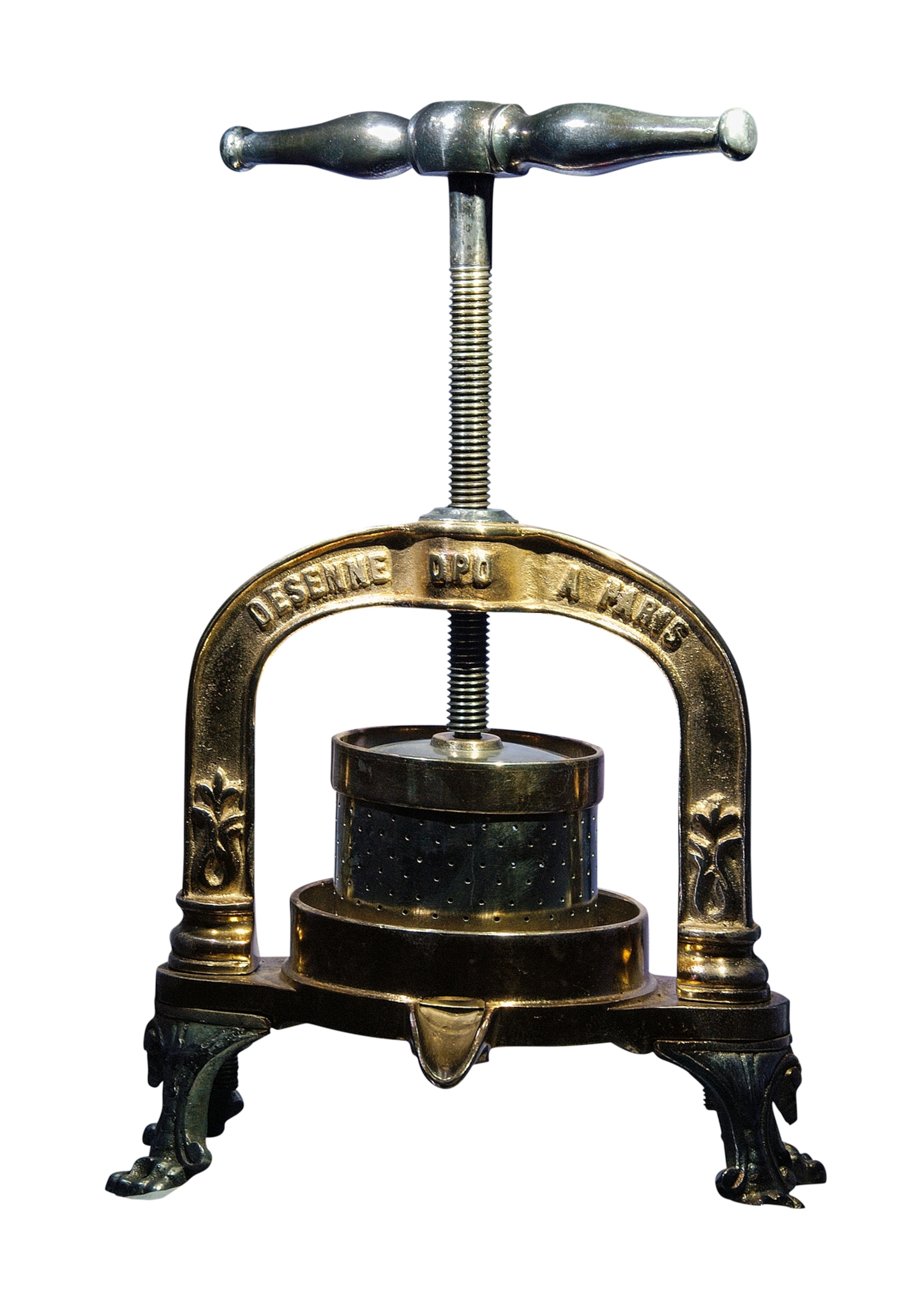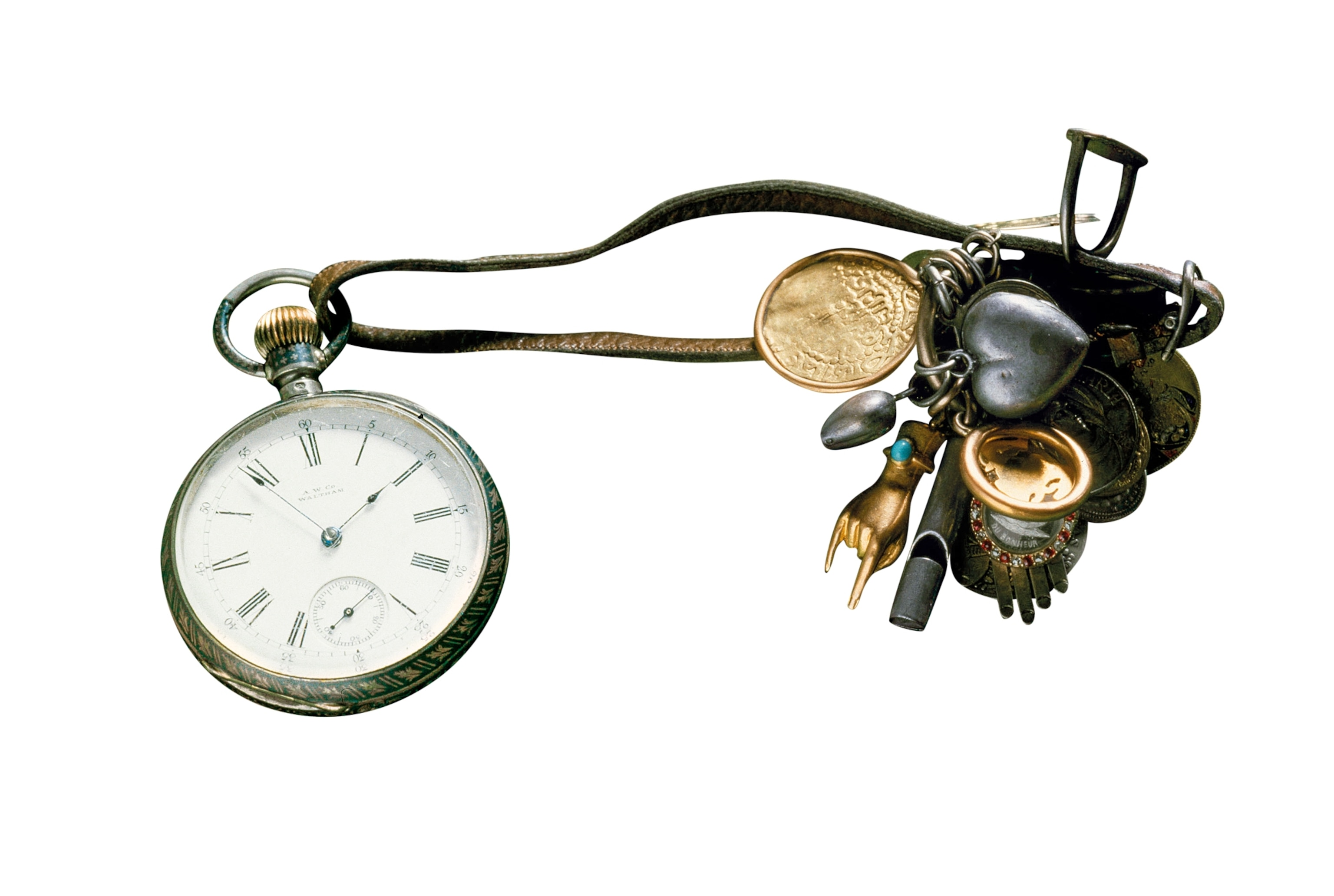Life for this Bavarian princess was no fairy tale
Married at 16 to the emperor of Austria, Elisabeth—nicknamed Sisi—was a reluctant empress, struggling with royal life and sympathetic to the democratic struggles of the people in her new nation.

The life of Elisabeth of Austria sounds like a romantic novel: A vivacious Bavarian princess captures the heart of the Austrian emperor. They marry and return to his palace in Vienna, where she confronts not only the stifling, iron-clad rules of court but also her domineering mother-in-law.
While the overarching themes may sound like fiction, they were very much the realities of Elisabeth’s life. Struggling to fit into court life, she clashed with Archduchess Sophie, her aunt and mother-in-law. Her husband’s civic duties kept the couple apart, which further isolated the young empress. She turned to many interests and pastimes to fill the hours. She read and wrote poetry, she traveled, and she studied the culture of her people, especially Hungary.
PICTURES OF A BEAUTY QUEEN
Elisabeth’s life played out against the dramatic upheavals of 19th-century Europe. Elisabeth entered the Austrian court as Prussia and Germany were gaining power, and the Habsburg monarchy sought to maintain control of Austria and Hungary in the face of popular opposition. Unsure of her role in a world where old certainties were being upended, the empress embarked on a lifelong search for a larger purpose outside of the roles traditionally ascribed to women. Her search brought her both great joy and sorrow, until it ended, with an assassin’s knife, in 1898.
Born free
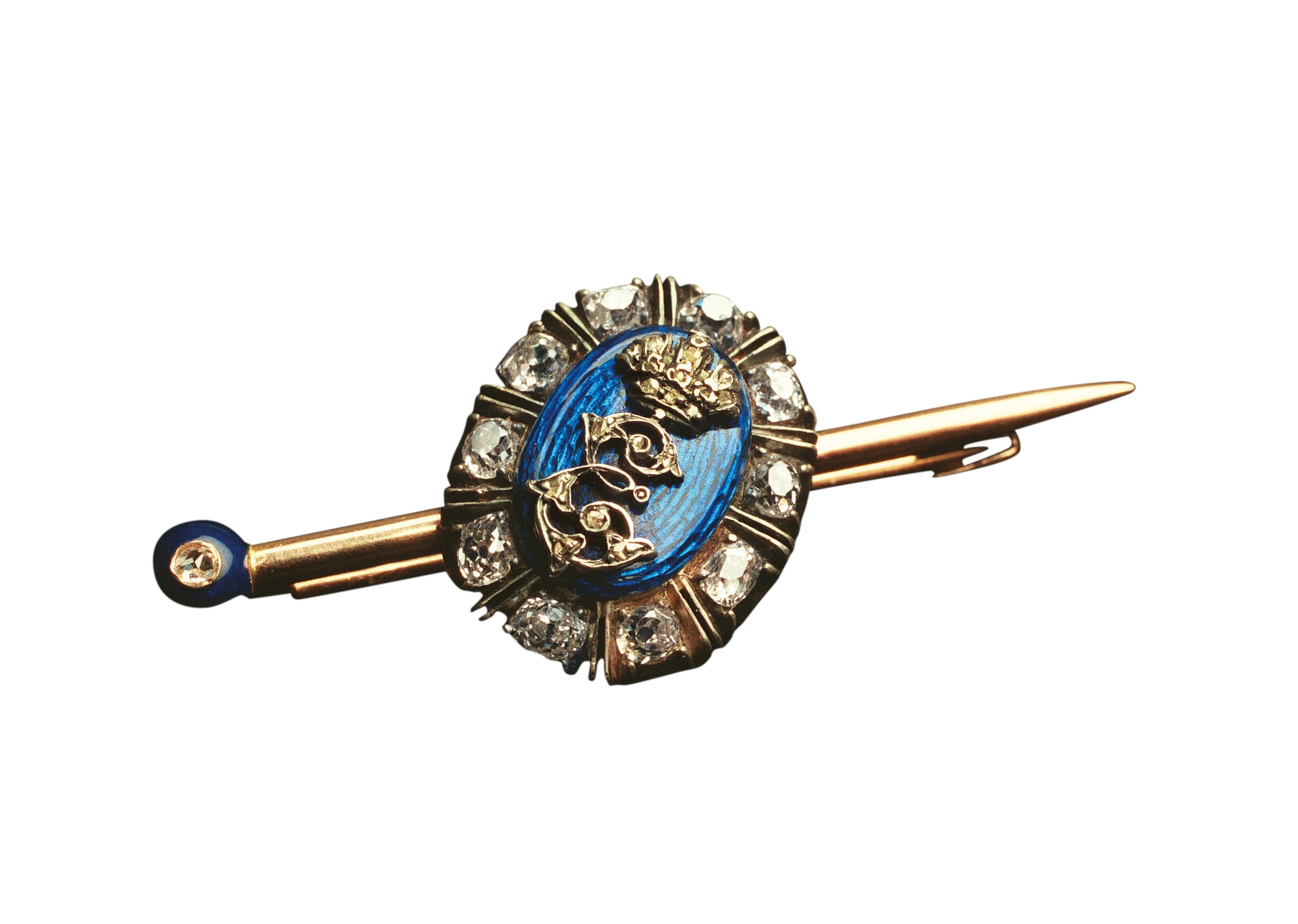
Elisabeth grew up in Bavaria, a wealthy Catholic kingdom that is now the largest state in Germany. She was the fourth of 10 children born to Duke Maximilian Joseph of Bavaria and Princess Ludovika, daughter of King Maximilian I of Bavaria. At the time of Elisabeth’s birth in 1837, Bavaria was redefining itself as its neighbors, Austria and Prussia, grew more powerful.
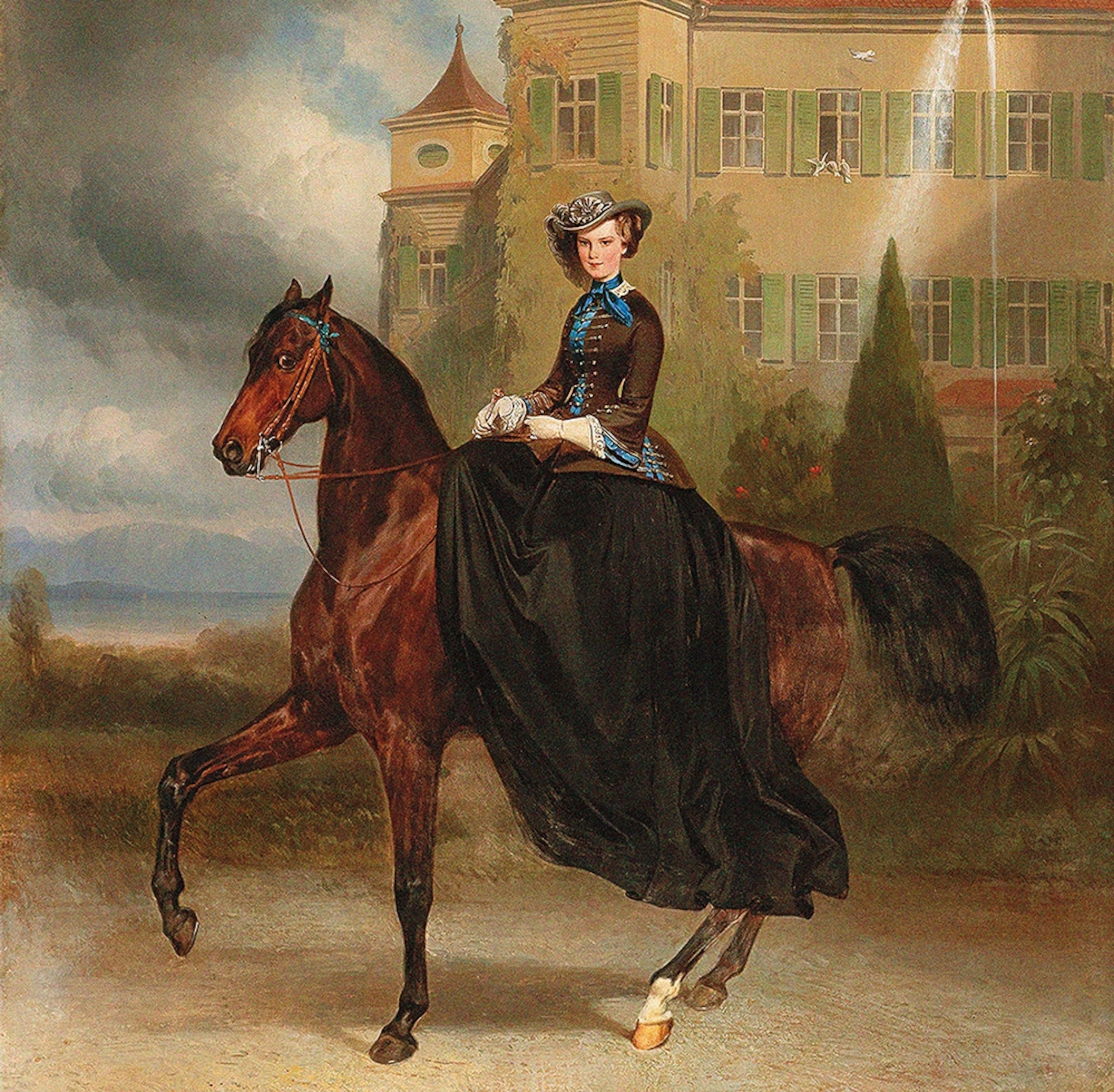
Nicknamed Sisi from a young age, Elisabeth loved nature and spent her summers in the comfortable family mansion on the banks of Lake Starnberg south of Munich. Her childhood was unusually informal for the time and for her status. Her father, the duke, was a music-loving bon viveur with notably liberal views that filtered down to his children.
As Sisi and her sisters grew, her mother Ludovika’s thoughts turned to their marriage. Sisi’s maternal aunt, Sophie, was married to the Archduke of Austria, Franz Karl. In 1848 their unmarried son, Franz Josef, became Austrian emperor at age 18. He looked to be a promising catch, and Ludovika set her sights on him.
At age 15, Sisi was too young to be considered a potential mate for the emperor, and the family focused on her eldest sister, Helene, whose elegance, piety, and reserve would be essential qualities for an emperor’s consort. Following discussions between her mother and Sophie, Helene was invited to Bad Ischl, the town where the imperial family summered, with a view to securing an engagement in 1853.
A surprise engagement
At first, only Helene and Ludovika were to make the journey that summer, but Sisi joined them. Shy and introverted, Sisi showed no interest in romance. She appeared very much a child, still dressing simply and wearing her hair in two braids. She was so shy that she had trouble eating in the presence of the Austrians. She seemed a bit player in a drama reserved for Helene.
Soon after the three women arrived, eagle-eyed courtiers could not help but notice how the young emperor’s attention was directed not at Helene but at her younger sister. Her aunt, Archduchess Sophie, recalled in her diary her son’s outpourings of praise: “Oh, but how sweet Sisi is . . . what a magnificent crown of hair frames her face! What lovely soft eyes she has, and lips like strawberries.” Efforts were made to steer his attentions to the older sister. When it became clear Franz Josef preferred Sisi to Helene, his mother and aunt decided to support the match.
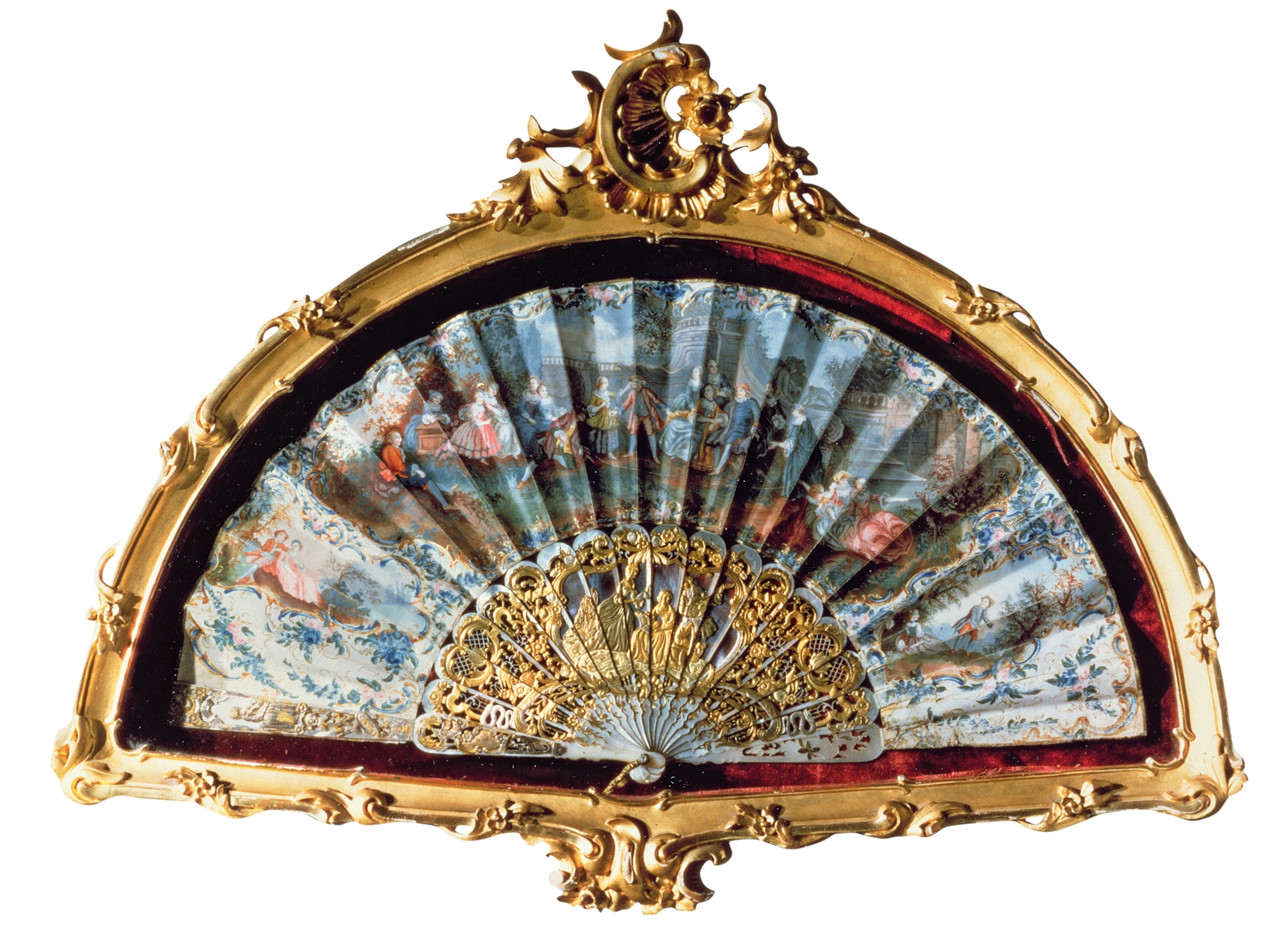
Sisi was overcome with apprehension. She wrote, plaintively: “I love the emperor. If only he were not the emperor.” But her feelings were not to stand in the way of her family’s will, or her mother’s pragmatic injunction that “one does not simply send the Emperor of Austria packing.” The pair were first cousins, but this obstacle was quickly overcome by papal dispensation to marry. On April 24, 1854, the marriage between Emperor Franz Josef and Elisabeth of Bavaria was solemnized in Vienna, and Sisi became the empress of Austria.
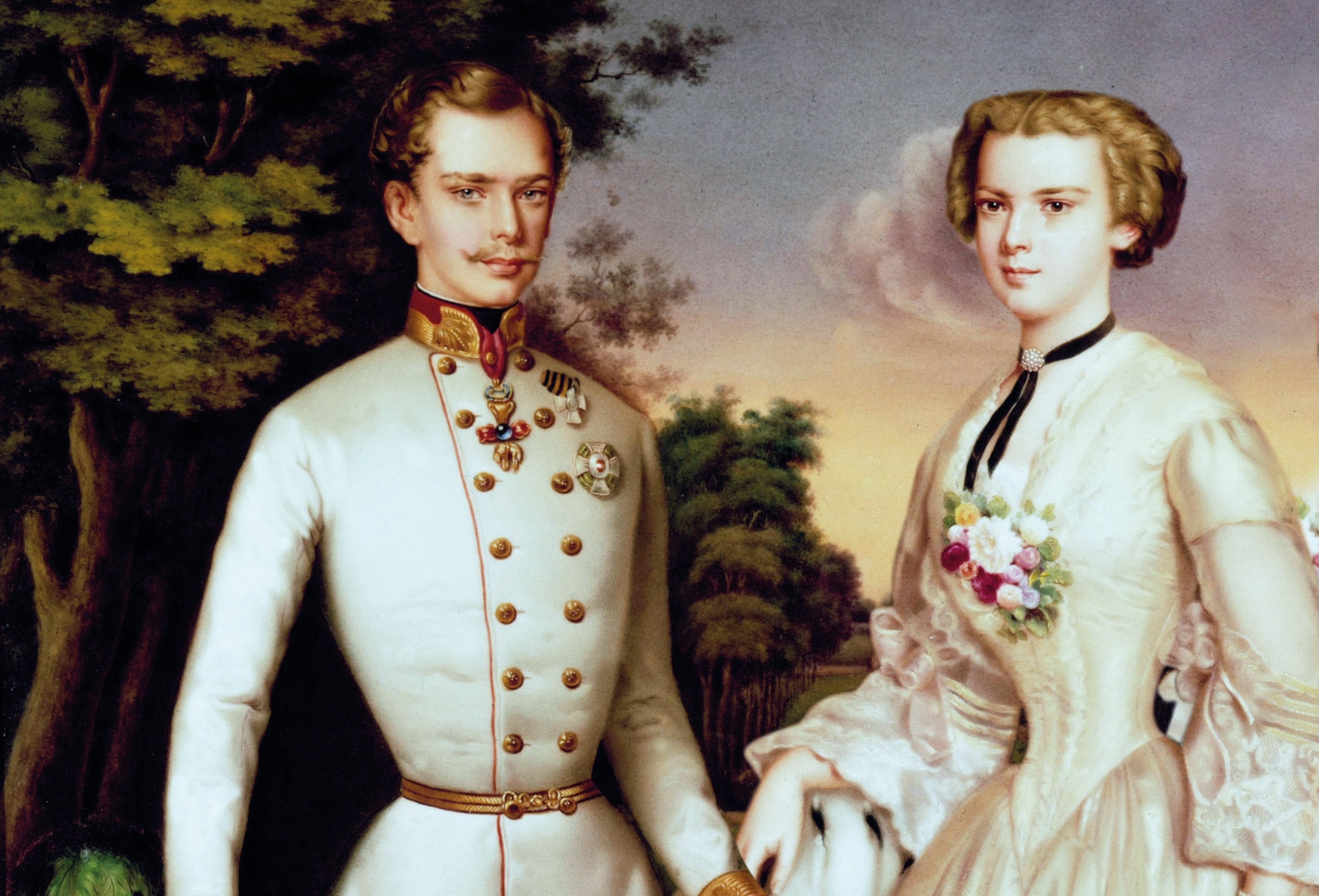
Crushed by the court
The young couple had little time to enjoy their union. Although Franz Josef professed to be very much in love with his new bride, his imperial responsibilities left him with little time for her. Six years before, in 1848, Europe had been rocked by revolutions. Although Austria had brutally crushed dissent in Hungary, Franz Josef’s territories were increasingly bedeviled by problems. The conclusion of the Crimean War had increased tensions with Russia, and tensions were rising in the Balkans.
If Franz Josef felt daunted by having to return to the practical realities of power, any fairy-tale notions Sisi may have had quickly evaporated too. Her life was carefully controlled and monitored. She had little privacy. The morning after she consummated her marriage, the whole court was informed.
Once settled at Vienna’s imperial palace, she was stricken with homesickness, especially when she remembered the carefree life she had enjoyed in the Bavarian countryside. Her unorthodox upbringing was at strong odds with the rigid rules in Vienna. Sisi turned to poetry to express her unhappiness, with verses recording a strong sense of desolation:
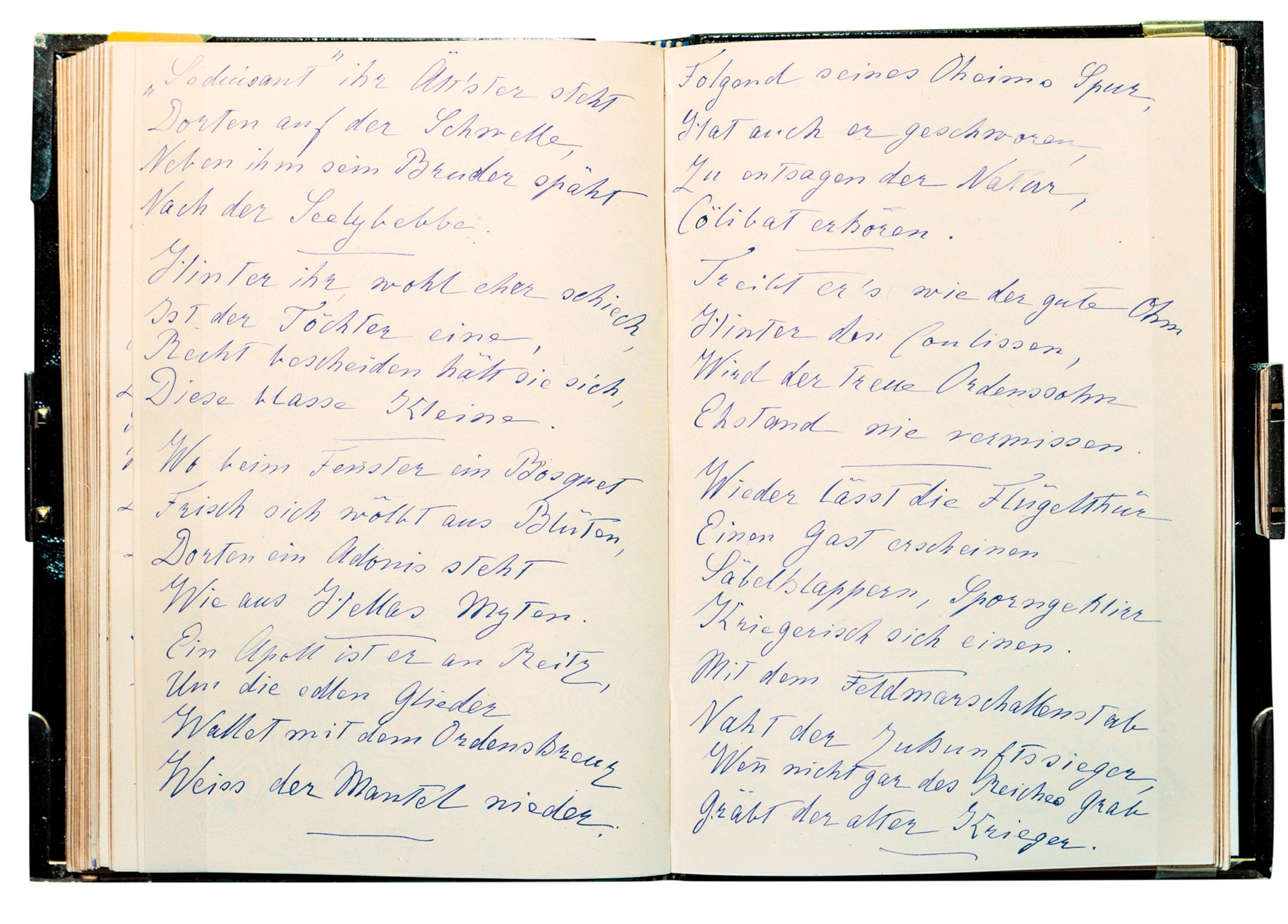
But what are the delights of Spring to me,
Here in this distant alien land?
I yearn for the sun of my homeland
I yearn for the beaches of the Isar.
Court etiquette left her feeling crushed. Her ladies-in-waiting were much older than she. With her husband occupied with matters of state, she had little in the way of companionship.
Almost immediately, Sisi clashed with her mother-in-law, Sophie. The formidable archduchess, by then nearly 50, had also grown up in Bavaria, but fought tooth and nail to impose her will on the Austrian court. She subjected Sisi’s habits, clothes, and pastimes to scrutiny and censure. Franz Josef did not interfere, perhaps because he was in debt to his mother for elevating him to the throne through her skillful maneuvering.
In the Shadow of Sophie
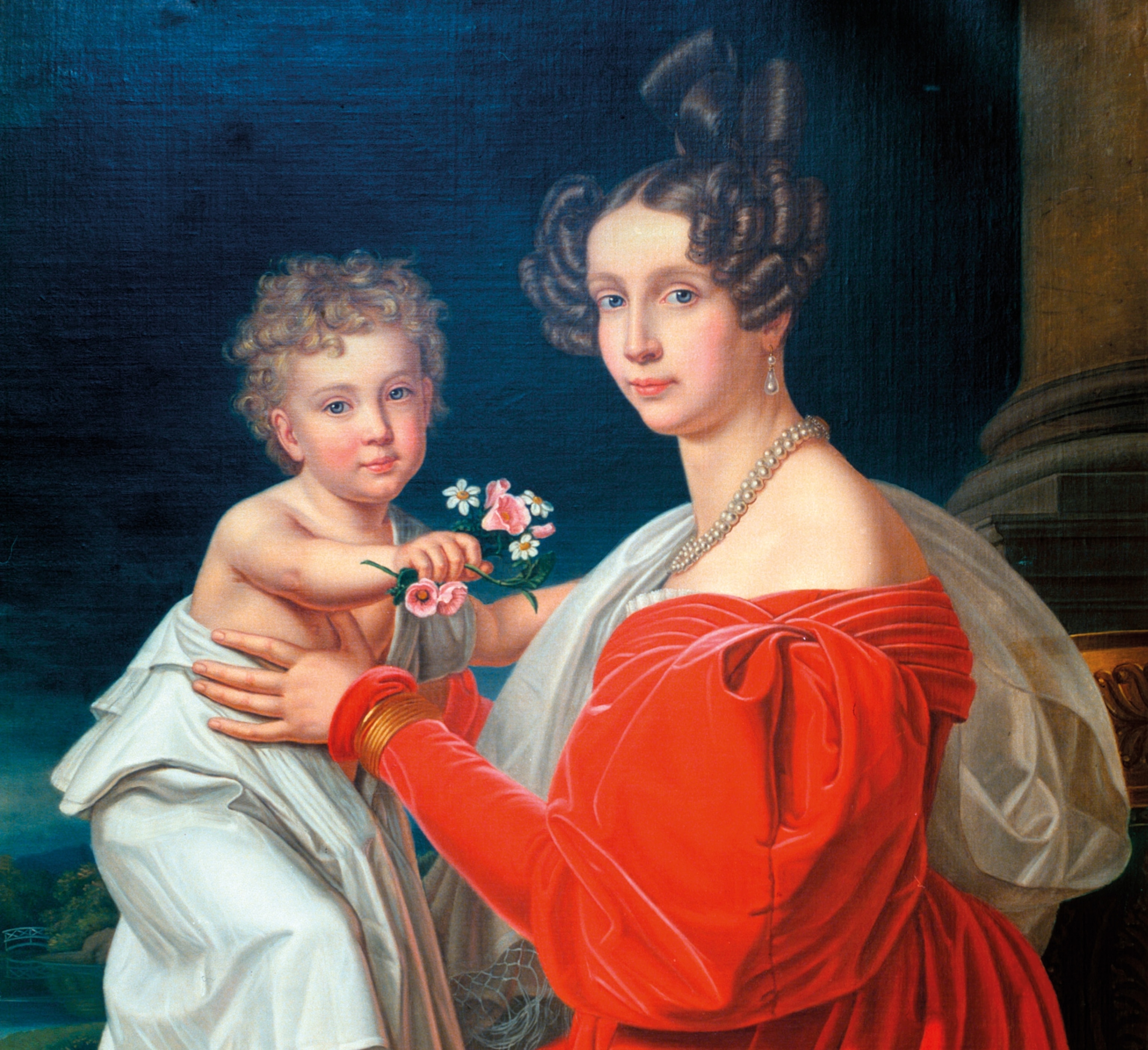
Executing a series of remarkable maneuvers, the Archduchess Sophie— Elisabeth’s aunt and mother-in-law—placed her own son on the imperial throne. Born in Munich, Bavaria, in 1805, Sophie married the Archduke of Austria, Franz Karl, when she was 19. A decade later, her husband’s mentally deficient brother, Ferdinand, became emperor, with day-to-day rule overseen by the diplomat Klemens von Metternich. Overturning conventions as to how women should behave, Sophie frequently challenged Metternich, helping engineer his downfall in 1848. On Ferdinand’s abdication that same year, Sophie persuaded her husband to renounce his claim to the throne and let their 18-year-old son, Franz Josef, accede. Sophie knew she could control her son, but not so her niece and daughter-in-law. On her arrival in Vienna in 1854, Elisabeth resented what she saw as Sophie’s controlling nature.
Such was Sophie’s power that less than a year after the wedding, when Elisabeth gave birth to her first daughter, the archduchess insisted the child be named for her. She also took charge of the infant’s care, declaring that the mother was too young to do it properly herself. Following the birth of Sisi’s second daughter, Gisela, the archduchess asserted control again—but this time Sisi stood up to her. Two weeks after Gisela’s birth, she and little Sophie were moved to Sisi’s rooms at the Hofburg.
Victory was short-lived, however, and followed all too soon by tragedy. In the spring of 1857, little Sophie caught dysentery during a trip with her parents to Hungary. The two-year-old died. Her mother, just 19 years old, was consumed with grief. Sisi relinquished responsibility for raising Gisela to her mother-in-law. A deep depression descended on Sisi that didn’t lift when she gave birth to a son, Rudolf, the following year.
Southern comfort
Despite her inward misery, Sisi appeared outwardly beautiful, owing to her obsession with her appearance. Famous for her beauty, Sisi devoted much time to maintaining it. Records indicate she spent three hours a day taking care of her long hair. When dressing, it took roughly an hour to cinch her waist to a punishing 19.5 inches. As Sisi aged, she became morbidly afraid of wrinkles, even wrapping slices of raw veal around her face when she slept. She stuck to a meticulous diet, severely limiting her daily intake of food. She kept a strict exercise regimen, allowing for hours of rigorous activity every day, including hiking, horseback riding, weight lifting, and calisthenics. But rather than an outlet for her anxiety, her fixation on fitness became an unhealthy obsession, resembling the symptoms of modern eating disorders.
DIET & EXERCISE
Recent biographers have also drawn attention to her active mind and love of literature and poetry, especially for the works of poet Heinrich Heine. Seeking a pretext to escape the stifling atmosphere of Vienna, Sisi sought relief by taking her doctors’ advice and heading to the Portuguese island of Madeira, where she lived in a villa overlooking the Atlantic. Here, she read poetry, walked, and immersed herself in the surrounding natural world. Her visit was the first in a series of extensive travels in which she sought to escape her unhappiness by absorbing the culture of other parts of Europe.
Anxious to reunite with her children, she made her way slowly back to Vienna in 1861. No sooner had she resumed her life there than tensions flared up again with Archduchess Sophie. Sisi declined to attend public functions and complained of physical and nervous ailments. Once again, she was advised by her doctors to seek warmer climes, and this time she chose the Mediterranean island of Corfu. A year later, in 1862, after a trip to see her family in Bavaria, she returned once more to Vienna.
Hungarian heroine
In the aftermath of an uprising in 1848, Austria suppressed Hungary’s constitutional privileges. After she became empress, Sisi became fascinated with Hungarian culture and politics, and she mastered the Hungarian language. She sympathized with the rebellious Hungarian aristocrats and became close with the dashing Gyula Andrássy, a Hungarian patriot and former rebel.
Although her support for a man the Viennese court regarded as a traitor provoked animosity, Elisabeth’s actions played a role in keeping Hungary within the empire. After Austria’s defeat by the Prussians at the Battle of Königgrätz, in 1866, the Prussian armies advanced toward Vienna, and Elisabeth took refuge in Buda (now Budapest) with her children.

The trust displayed by the empress in seeking protection in Hungarian territory was regarded as a gesture of goodwill by many Hungarians. Soon after, and thanks to Sisi’s intense lobbying, Andrássy negotiated terms with Franz Josef that granted Hungary its own constitution. The empire was reconfigured as two sovereign states, Austria and Hungary, with separate regimes and governments but united under a single crown.
On June 8, 1867, Franz Josef and Elisabeth were crowned as constitutional monarchs of Hungary. As a demonstration of their goodwill, the Hungarian people gave the couple a gift of the baroque castle of Godollo on the outskirts of Buda. One year later, Sisi gave birth to her last and most doted upon child, the Archduchess Maria Valerie, in this castle.
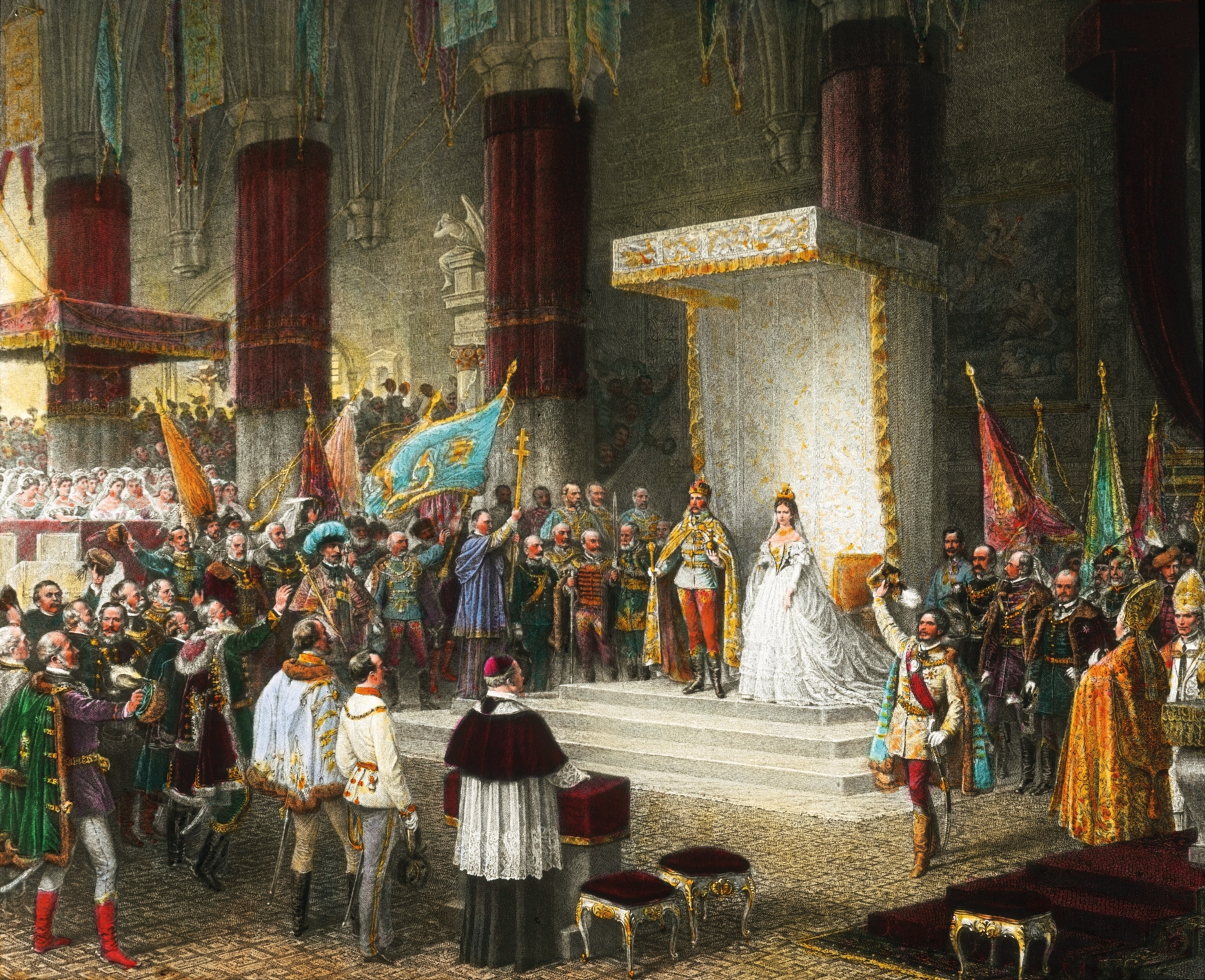
Elisabeth spent long periods of time at Godollo with her children. Years later, after Gisela was married and Rudolf had started his military training, Sisi started another intensive round of travels, this time accompanied by Maria Valerie.
In 1874, using the pseudonym Countess of Hohenembs to ensure anonymity, Sisi embarked on a European tour with her younger daughter. The empress and her husband had begun living separate lives. The different natures of Elisabeth and Franz Joseph—she was spirited and cosmopolitan while he was dry and conventional—had pushed the couple apart. When in 1885 Katharina Schratt, an actress from the Burgtheater of Vienna, became a fixture in the emperor’s life, Sisi accepted the relationship. She felt no jealousy for her husband, and recognized his loneliness and their incompatibility. In later years her views on marriage were forthright: “One is sold as a child at 15, and one takes an oath one does not understand but can never undo.”
Violent ends
Terrible tragedy struck in early 1889: Sisi’s son and the heir to the throne, Crown Prince Rudolf, and Marie Vetsera, his 17-year-old lover, had been found dead in an apparent double suicide at a hunting lodge in Mayerling. The “Mayerling Incident” became a sensational scandal across Europe.
The death of Franz Josef’s heir plunged the empire into succession crisis, and the empress into a deep depression over the loss of her son. After Rudolf’s death, Sisi traveled frantically, taking refuge once again in Corfu, where she had her summer palace, the Achilleion, built.
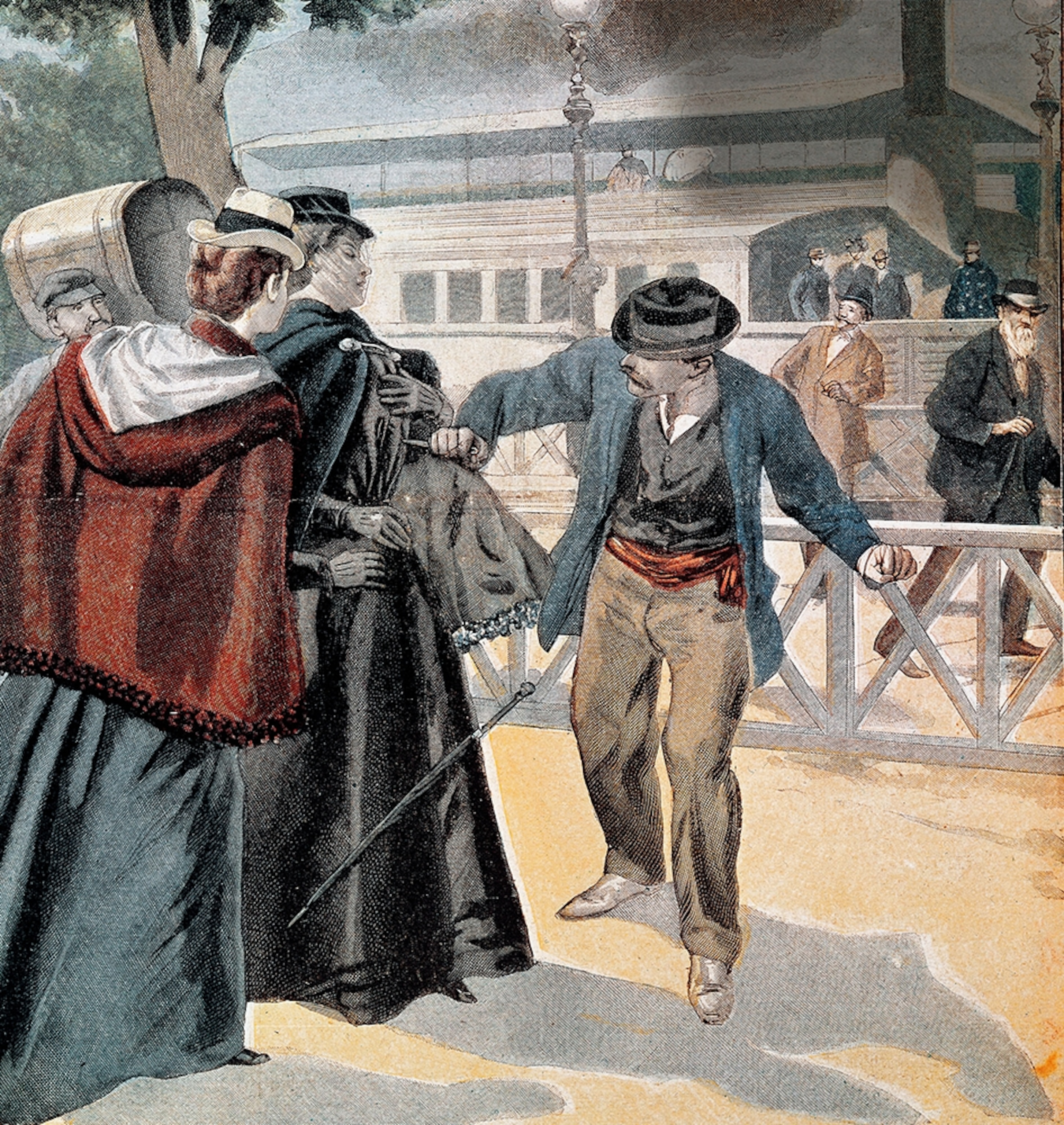
In the fall of 1898, Sisi visited Geneva, and on September 10, she walked to the lakeside to take the ferry to Montreux. Another pedestrian bumped into her; she felt a sharp pain against her rib but continued to walk to the ferry. She had been stabbed in the chest with a homemade knife. Once on board, the 60-year-old empress fainted from blood loss and died that same night.
Her murderer, an Italian anarchist called Luigi Luccheni said in his confession that he personally had nothing against the empress, only that he wished to kill a royal. Sisi wanted to be buried on the shores of the Mediterranean, but Franz Josef overruled her wishes and laid her instead in the Capuchin Crypt in Vienna. And there she lies still, at the heart of a city that she never loved and which never understood her.

